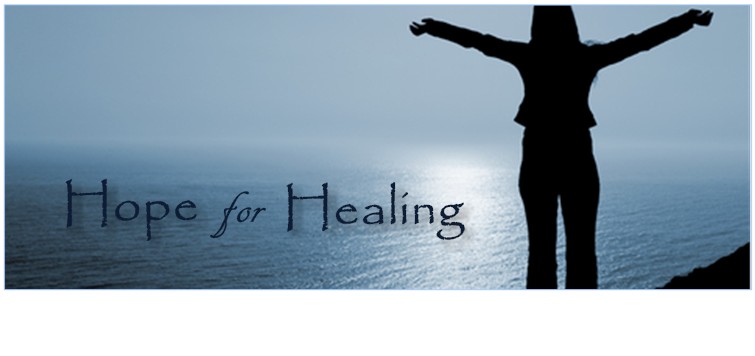Counselling for Trauma Survivors
I work with individuals who have experienced abuse or trauma in the past, particularly during childhood. Counselling can help with finding safe and constructive ways of managing your emotions. Whatever your specific circumstances, I will work with you and support you to feel more empowered, to help you move on, to live your life more fully, and to be free from the trauma that you have suffered.
What is Trauma?
The word trauma is used to describe events that are overwhelmingly stressful, life threatening, and emotionally painful, which leave the individual unable to cope with day to day life. Trauma is a wound, that can be both physical (a visible injury or scar) or emotional (a deep invisible inner pain or suffering).
Traumatic experiences are events that threaten or violate one’s safety, health and integrity. Trauma can have a profound impact on emotional and psychological wellbeing and everyday functioning. If you’ve gone through a traumatic experience, you may be struggling with upsetting emotions, frightening memories or flashbacks, or a feeling of constant danger. While these feelings are understandable and normal to abnormal events, some people have difficulty moving on with their lives. Almost everyone who experiences trauma will be emotionally, physically and psychologically affected, but not everyone will respond in the same way. Everyone reacts differently to traumatic experiences and the expression of traumatic stress is influenced by a combination of individual factors such as age, gender, personality, life experience, cultural upbringing, as well as by environmental and social factors. Reactions can range from mild to severe and can persist for weeks, months and often years after the initial traumatic event. All traumatic events can be experienced directly or witnessed as events happening to somebody else. The more frightened, overwhelmed and hopeless you feel at the time of the event the more likely you are to be traumatized.
How can Counselling help with trauma and abuse?
I work with individuals who have experienced abuse or trauma in the past, particularly during childhood. Counselling can help with finding safe and constructive ways of managing your emotions. Whatever your specific circumstances, I will work with you and support you to feel more empowered, to help you move on, to live your life more fully, and to be free from the trauma that you have suffered.
We can’t change the past but we can end the emotional pain attached to those events that may have robbed the quality of your life. Recovery takes time. A psychological and emotional wound cannot be forced to heal quickly. Most trauma experts agree that abuse is predominantly an attempt by the perpetrator to gain power over their ‘victims’. The counselling process can be described as transitioning from a victim or powerless position to a survivor or empowered position.
Counselling enables you to explore some of your complex feelings around the trauma and the impact it’s had on your emotional life and your relationship with yourself and others. Most importantly, through our work together, you can begin to reclaim your sense of identity, your trust, and rediscover safety both internally and in the external world. Through talking therapy you can begin to transform your experiences and give new meaning to both the trauma and yourself as a trauma survivor.
 Traumatic situations can be classified as acute or chronic.
Traumatic situations can be classified as acute or chronic.
Acute Traumatic Events
These are are typically single or one time events and are initially accompanied by intense feelings of shock, fear and helplessness. Some examples of acute traumatic events include accidents, serious injury, natural disasters (e.g. hurricanes, earthquakes), sudden death or loss of a loved one, robbery, violent attacks, sexual assaults or sexual violence such as rape, etc.
Chronic Traumatic Events
These are characterized by repeated and persistent threats, violations of safety and integrity that are experienced over a significant length of time, which are associated with a wide range of complex emotions such as fear, shame, hopelessness, dissociation, numbness and distrust. Some examples of chronic situations are domestic abuse, physical, emotional, psychological and/or sexual abuse, neglect, war, and political violence.
Childhood Trauma & Abuse
Experiencing abuse or neglect as a child can have a severe and long lasting effect on the individual’s emotional, physical and mental health. When childhood trauma is not resolved, a sense of fear and helplessness carries over into adulthood.
Childhood trauma results from anything that disrupts a child’s sense of safety and includes any unstable, unsafe or threatening environment. Abuse can take many forms:
-
Physical Abuse
Physical abuse constitutes acts of physical violence such as hitting, shaking, burning, choking and other actions that can cause physical injury to the body.
-
Sexual Abuse
Sexual abuse covers all acts that are of a sexual nature including rape, assault, child molestation, incest, and any form of non-consensual sexual contact.
-
Emotional Abuse
This can be the most difficult to identify because there are usually no outward signs of abuse. Emotional abuse constitutes actions such as being criticized constantly, threatened, bullied, dismissed, or being yelled at. Emotional abuse can be just as painful and damaging as physical abuse.
-
Neglect
Neglect can occur when adequate food, clothing, warmth, housing, and medical care are not provided in childhood. Additionally, emotional neglect happens when support, love and attention are withheld or not provided.
Whatever the form, emotional, physical/sexual, or psychological, the experience of childhood abuse is trauma. Children who are exposed to abuse and trauma may develop what is called a heightened stress response which then impact their ability to regulate their emotions. Research shows that a combination of any of the above traumatic childhood experiences can increase the risk of future trauma, later in adult life, as a result of increased emotional vulnerability and distress. Surviving abuse or trauma as a child has been linked with higher rates of depression, self-harm, anxiety, eating disorders, suicide, abuse of alcohol and drugs, relationship difficulties e.g. problems with intimacy and trust, as well as with Post Traumatic Stress Disorder (PTSD) e.g. the emotional effects and/or memories of abuse/trauma resurfacing years later.
As each trauma is unique to each individual, the triggers, responses and symptoms are significantly varied. However, there are some common emotional, psychological and physical symptoms of trauma.
Physical Symptoms of Trauma
- Insomnia
- Nightmares
- Palpitations or racing heartbeat

- Aches and pains
- Edginess and agitation
- Fatigue
- Difficulty concentrating
- Being startled easily
- Nausea and dizziness
Emotional & Psychological Symptoms of Trauma
Emotional and psychological traumas result from being exposed to profound and prolonged distress in response to overwhelmingly terrifying, unstable and dangerous experiences.
- Anxiety & fear
- Feeling disconnected or numb
- Withdrawal from others
- Shock, denial or disbelief
- Explosive or destructive anger and rage
- Mood swings and feeling low
- Feeling sad, helpless and hopeless
- Confusion and unable to find meaning in life
- Feeling unstable and unsafe
- Fear of abandonment and rejection
- Guilt, self-blame and shame
- Excessive reliance on alcohol, drugs or food to manage feelings
- Self-harming and self-destructive behaviors
- Obsessive compulsive behaviors (OCD)
- Feelings worthless and unlovable
- Difficulty in trusting others
- Pattern of unstable, unsatisfactory or violent relationships
- Lack of assertiveness skills
- Lack of boundaries
If you or anyone you know is experiencing immediate crisis you can seek help and support from the listed organisations, help-lines or support groups here
How can we work together?
I offer an Initial Assessment as an opportunity to meet before you commit to therapy. This also gives us a chance to discuss your current difficulties, goals for therapy and see whether we are the best fit for each other.
Talking Can Help
To book an Initial Assessment please call 07846 989439 or fill in the main form here and I’ll get back to you as soon as I can.
I look forward to hearing from you.
Fill in the form to send me a general email. All fields marked with a * are required and to help prevent SPAM please solve the simple sum before submitting your message.
